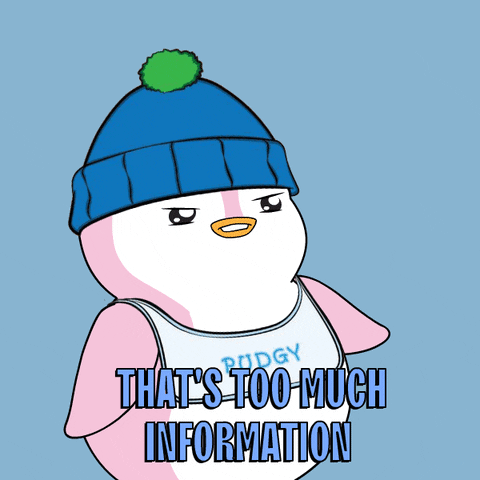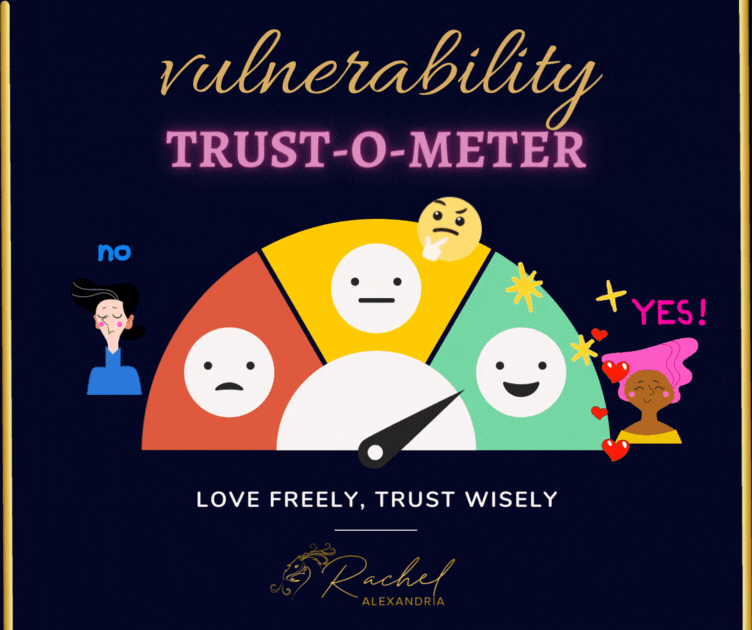“…and then my boyfriend said he thought we should see other people. I got super sick after that, with some kind of weird bacterial infection that hit my gall bladder. Also, my boss has been being pretty crappy with me for having to take time off. That’s when stuff REALLY started to go downhill…”
Ever find yourself giving a truckload of personal information to someone without meaning to, and then feeling embarrassed or cut off after it’s over?
I was this person in college. I’d sit in the hall outside my dorm room in the late evening, and literally shared excerpts from my journal with the poor people who just wanted to get to the communal bathroom. Yes, I was an oversharer.
Even though the underlying desire is to connect with someone, it’s “too much, too soon” and it has the opposite effect. Oversharing tends to turn people off and can even lead to people having bad impressions of you.
 Credit: PudgyPenguins
Credit: PudgyPenguins
So it’s better to keep as much possible to yourself, right? Your problems aren’t anyone else’s business.
That’s not the best idea either. Undersharing means you won’t build strong personal connections because people feel you’re unapproachable, cold, or uninterested. You will likely feel pretty lonely and misunderstood.
I wish I could give you an easy formula for the exact right amount of sharing that will lead to great friendships. But I can’t—figuring out how much to share with people is a learned skill.
It’s like cooking: you have to practice and taste test to find out what exactly a pinch of salt or a sprinkle of nutmeg means for that particular recipe.
Image – taste test
Here are a couple of reflection questions that can help you build a better sense of how much to share:
-
- What is your intention in sharing this information?
If you just need to get it off your chest, consider if this is the right audience. But if you really want this particular person to know this about you, then that is a well-aligned intention.
- What is your intention in sharing this information?
-
- How close are you with this person already?
If you’re very close with them, it’s likely fine to share. But if they are a stranger or a new acquaintance, you might want to ask permission or test with a small amount of deeper sharing before backing up the truck.
- How close are you with this person already?
-
- How well has this person handled your sensitive shares before?
If this person has kept your trust and given you amounts of compassion that feel good for you, then this is a smart place to share. But if they have ever used your personal information against you or passed along things you have told them in confidence, then you probably want to hold back with them.
- How well has this person handled your sensitive shares before?
-
- Is there a balance of sharing between you, i.e. have you also been the listener for their vulnerable moments?
If you have made space and time for them to share, too, then things will likely feel good and reciprocal. But if it’s always you confiding, something may not be quite right here.
- Is there a balance of sharing between you, i.e. have you also been the listener for their vulnerable moments?
-
- Is this the right time and place to get into something deeply personal?
Heading into a busy family event or dropping a vulnerability bomb right before someone has to get off the phone isn’t considerate timing. But if you’ve got some privacy and some time set aside for connecting, that’s the best plan.
 When you stop to consider these questions before you share, you’re more likely to make a deliberate choice that creates good connection, rather than (re)acting without thinking in a way that causes problems.
When you stop to consider these questions before you share, you’re more likely to make a deliberate choice that creates good connection, rather than (re)acting without thinking in a way that causes problems.Let’s talk more about sharing and connecting in the next post.
Want to get these articles in your inbox? Subscribe to my email list here.
- Is this the right time and place to get into something deeply personal?
